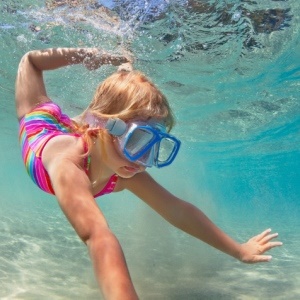
Swimming in the sea may not be as good for your health as you may think, new research suggests.
It found a twofold increased risk for general ear problems, a 77% increased risk for earaches and a 29% increased risk for diarrhoea and other gastrointestinal illnesses among people who swam in the sea.
Probability of illnesses
The findings came from an analysis of 19 studies, involving more than 120 000 people from the United States, the United Kingdom, Australia, New Zealand, Denmark and Norway. The results were published recently in the International Journal of Epidemiology.
"In high-income countries like the UK, there is a perception that there is little risk to your health if you spend time in the sea," researcher Anne Leonard, from the University of Exeter Medical School in England, said in a news release from the school. "However, our paper shows that spending time in the sea does increase the probability of developing illnesses, such as ear ailments and problems involving the digestive system, such as stomach ache and diarrhoea.
"We think that this indicates that pollution is still an issue affecting swimmers in some of the world's richest countries," Leonard added.
Despite major improvements in water quality, seawater is still polluted from sources such as industrial waste, sewage and run-off from farmland, the researchers noted.
By international standards, South Africa’s coastal waters have very low levels of pollution, according to the South African Department of Environmental Affairs. There are however numerous discharge points, through which up to 1.3 million m3 of wastewater is discharged daily into the marine environment.
Serious for vulnerable people
"We don't want to deter people from going into the sea, which has many health benefits – such as improving physical fitness, well-being and connecting with nature," fellow researcher Will Gaze, also from the Exeter medical school, said in the news release. "However, it is important that people are aware of the risks so they can make informed decisions.
"Although most people will recover from infections with no medical treatment, they can prove more serious for vulnerable people, such as the very old or very young, or those with pre-existing health conditions," he noted.
"We have come a long way in terms of cleaning up our waters, but our evidence shows there is still work to be done," Gaze said. "We hope this research will contribute to further efforts to clean up our coastal waters."
Image credit: iStock




 Publications
Publications
 Partners
Partners










